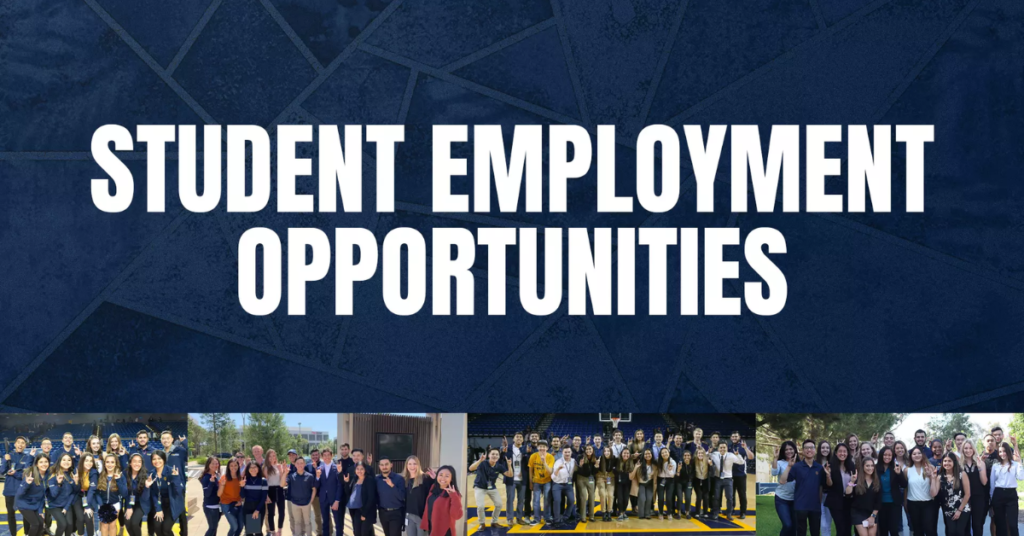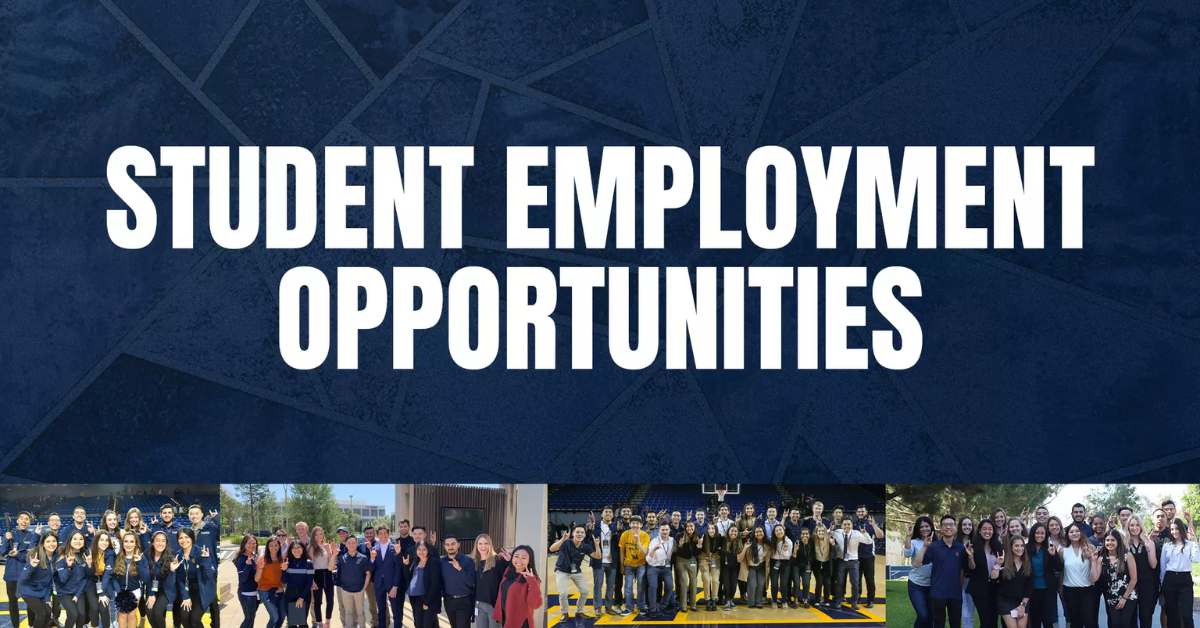For university students, on-campus employment is more than just a source of income—it’s an opportunity to gain valuable experience, build career-relevant skills, and develop professional relationships. With flexible hours and convenient locations, on-campus jobs cater to students’ academic schedules and provide an environment that fosters growth both academically and personally. In this article, we will explore the types of jobs available to students on campus, the eligibility criteria, the key advantages of working on campus, and tips for successfully managing a job alongside academic responsibilities.

Types of On-Campus Jobs
On-campus employment spans a variety of sectors, offering students the chance to work in positions that align with their interests and career goals. These jobs generally fall into three categories: administrative roles, academic positions, and service-based jobs.
1. Administrative Roles:
Administrative positions are common across university departments such as student services, admissions, financial aid, and alumni relations. Students working in these roles handle tasks like answering phones, filing documents, assisting with events, and managing social media accounts. These positions help students develop communication, organizational, and clerical skills, all of which are transferable to future career opportunities in any industry.
2. Academic Roles (Teaching and Research Assistants):
Teaching assistant (TA) and research assistant (RA) roles are highly sought after, particularly by graduate students or upper-level undergraduates. TAs work closely with professors to assist in grading, leading discussion sections, or tutoring students. RAs collaborate with faculty on research projects, gaining hands-on experience in data analysis, literature reviews, and laboratory work. Both roles provide students with valuable exposure to their academic fields and often come with additional financial benefits, such as stipends or tuition discounts.
3. Service-Oriented Jobs:
Service-oriented positions are found in areas like dining services, campus libraries, recreational centers, and bookstores. Students may work as cashiers, gym attendants, baristas, or library assistants. These jobs offer more flexible schedules, often including night or weekend shifts, making them ideal for students who need to balance their work hours around academic commitments. Additionally, these roles provide students with experience in customer service, teamwork, and time management.
Eligibility Criteria for On-Campus Employment
Although most students are eligible for on-campus jobs, specific rules and eligibility requirements vary depending on student status, visa regulations, and financial aid qualifications.
1. Domestic Students:
For domestic students, eligibility for on-campus jobs is typically straightforward. Full-time students are usually permitted to work a certain number of hours per week, generally between 10 and 20 hours during the academic year. Work-study positions, however, may require students to demonstrate financial need, as they are part of the federal financial aid package. To qualify, students must complete the Free Application for Federal Student Aid (FAFSA), which determines their eligibility for need-based employment.
2. International Students:
International students are also eligible for on-campus employment but must adhere to specific visa regulations. For example, students on F-1 visas in the U.S. are permitted to work up to 20 hours per week during the academic term and full-time during university breaks. However, international students need to remain compliant with their visa conditions, and they may be required to obtain work authorization from the university’s international office before beginning employment. Additionally, some positions, particularly those involving sensitive research, may not be open to non-citizens.
3. Work-Study Programs:
Work-study is a federally funded program in the U.S. that provides part-time jobs to students with financial need. These positions are often highly flexible and tailored to accommodate students’ academic schedules. Work-study jobs can be found across a variety of university departments and provide students with an opportunity to earn money while gaining work experience. To qualify for work-study, students must apply through the FAFSA and be awarded a work-study allotment as part of their financial aid package.
Key Benefits of On-Campus Employment
The benefits of on-campus employment extend far beyond financial compensation. Working on campus allows students to develop essential skills, form professional networks, and build a foundation for future career success.
1. Financial Independence:
One of the primary reasons students seek on-campus jobs is to gain financial independence. Income from these jobs can be used to cover tuition fees, textbooks, housing, and daily living expenses. For students participating in work-study programs, on-campus employment is an integral part of their financial aid, helping reduce the reliance on student loans.
2. Convenient and Flexible Scheduling:
On-campus jobs are convenient because they are located within the university, eliminating the need for long commutes and saving time for academic pursuits. Most on-campus employers understand the importance of academics and offer flexible schedules that fit around students’ class timetables. This flexibility is particularly important during exam periods or when students need to allocate more time for assignments and study sessions.
3. Skill Development:
Working on campus allows students to develop a wide range of skills that are transferable to their future careers. Administrative jobs help improve organizational and communication skills, while research assistantships provide valuable experience in data analysis and critical thinking. Service-oriented positions teach students how to manage customer interactions, work in teams, and handle high-pressure situations. These skills not only enhance employability after graduation but also give students a competitive edge in the job market.
4. Professional Networking Opportunities:
On-campus employment creates opportunities for students to connect with professors, university staff, and fellow students. Building these relationships can be valuable for mentorship, recommendation letters, and future job opportunities. Research and teaching assistant roles, in particular, allow students to form close working relationships with faculty members, often leading to long-term professional connections that can open doors to internships, graduate programs, and careers.
5. Time Management and Responsibility:
Juggling work and academics forces students to master time management and prioritize their tasks effectively. Balancing job responsibilities with coursework teaches students how to plan their schedules, meet deadlines, and maintain a healthy work-life balance. This experience is critical for future professional settings, where time management and multitasking are key to success.
Challenges of On-Campus Employment
While the advantages of on-campus employment are significant, students may face challenges when trying to balance work and academics. Here are some potential challenges and strategies for overcoming them:
- Time Constraints:
Balancing work hours with academic obligations can be overwhelming. Students should assess their academic workload before committing to a job and avoid overloading their schedules. Setting realistic expectations for work hours is crucial to maintaining both academic performance and personal well-being. - Burnout:
The pressure to manage both work and studies can lead to burnout if not handled properly. Students should take advantage of campus resources, such as counseling services and time management workshops, to maintain a healthy balance. Regular breaks, prioritizing sleep, and engaging in extracurricular activities can also help prevent burnout. - Effective Communication with Employers:
Open communication with on-campus employers is essential. If academic commitments become too demanding, students should feel comfortable discussing schedule adjustments with their supervisors. University employers are often more understanding of academic pressures than off-campus employers, making it easier for students to manage their workload.
Conclusion
University on-campus employment offers students the chance to not only earn money but also gain invaluable work experience that complements their academic pursuits. Whether working in administrative roles, academic assistantships, or service positions, students benefit from the convenience, flexibility, and professional development that on-campus jobs provide. These roles foster skill development, financial independence, and personal growth, all while helping students build strong professional networks that will serve them long after graduation. For those who can manage their time effectively and communicate openly with their employers, on-campus employment can significantly enrich the university experience and pave the way for future success.
